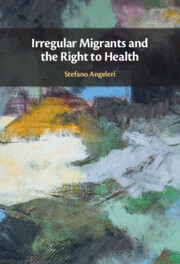This chapter proposes that international legal scholarship may, in its encounter with the phenomenon of migration, benefit from acquiring a sensitivity to the political economy of the distinction between crisis and the mundane. It does so by looking at two particular fields of international migration: refugee law and the law of irregular migration. The first enjoys a large degree of attention from international lawyers, while the other enjoys almost none. Moreover, within these two categories of migrants, international legal scholars tend to ‘see’ some subjects, such as refugee crises and human trafficking, and ‘not see’ others, such as the legal limbo of the ‘temporary’ refugee camp and the daily life of the irregular migrant. This chapter argues that the difference in attention international legal scholars give to one or the other category of persons is the product not of the jurisdiction or the reach of international law, but rather of ideological and epistemological biases. These biases cause international lawyers to ‘see’ crisis, and to ‘not see’ that which is not crisis—that which is quotidian, mundane, or ‘normal’, in the ‘everyday’ sense of the word. By focusing on the crisis/mundane distinction and the privileging of ‘crisis’, this chapter helps to identify the specific focus and boundaries of the epistemic bias of international migration law scholarship.
